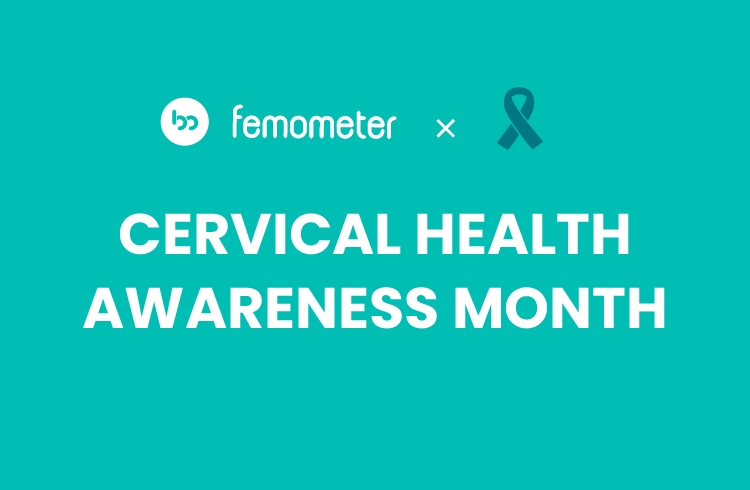Basal Body Temperature Tracking
BBT tracking, short for Basal Body Temperature tracking, is a method used to monitor a woman's menstrual cycle and fertility. It involves measuring the body's lowest resting temperature, known as basal body temperature, every morning before any physical activity. The recorded temperatures are then plotted on a chart to identify patterns and changes throughout the menstrual cycle.
BBT tracking is based on the principle that a woman's body temperature slightly increases after ovulation due to the release of progesterone. By tracking these temperature changes, women can identify their fertile days, track ovulation, and increase their chances of conception or avoid pregnancy. BBT tracking can provide valuable insights into reproductive health and assist in family planning. Additionally, irregularities in your BBT chart can alert you to potential issues with ovulation or hormonal imbalances, prompting you to seek medical advice if necessary.

Why BBT Tracking Is Important
BBT tracking plays a crucial role in understanding a woman's menstrual cycle, fertility, and overall reproductive health. Here's why BBT tracking is important.
- Pinpointing Ovulation
BBT tracking helps determine the exact timing of ovulation, which is crucial for those trying to conceive. After ovulation, the release of progesterone causes a slight increase in basal body temperature. By tracking BBT over time, women can identify a pattern of temperature rise that indicates ovulation has occurred. This knowledge enables couples to time intercourse optimally, increasing the chances of successful conception.
- Fertility and Family Planning
BBT tracking assists in understanding fertility patterns. By identifying the fertile window, which typically spans a few days before and after ovulation, couples can plan intercourse accordingly to maximize their chances of conception.
- Health Indicators
BBT tracking can provide additional valuable health insights beyond fertility. It can help identify irregularities in the menstrual cycle, such as anovulatory cycles (cycles without ovulation), which may indicate hormonal imbalances or potential health issues. Consistently low or high temperatures may be indicative of thyroid problems or other underlying health conditions. This information can be shared with healthcare professionals, aiding in the diagnosis and treatment of various reproductive or endocrine disorders.
By incorporating BBT tracking into their routine, women can gain a deeper understanding of their reproductive health and take proactive steps towards achieving their desired family planning goals.
Tools for BBT Tracking
There are several tools available for tracking basal body temperature (BBT), each offering different features and advantages. Here are a few popular options along with their pros and cons:
- Basal Body Thermometer
A specialized BBT thermometer, such as the Femometer Vinca 2.0 basal thermometer, is designed to measure your body temperature with high accuracy. This thermometer offers several advanced features, including memory recall, backlight display, and quick measurement. It is affordable, easy to use, and widely available. By using a BBT thermometer, you can obtain accurate readings and record them for further analysis. Understanding the patterns in your cycle is crucial for gaining insights into your fertility and overall health.
- Fertility Tracking Apps
Fertility tracking apps provide a convenient way to record and monitor your BBT readings. These apps, like the Femometer app for fertility tracking , offer features that go beyond just BBT tracking. They allow you to input your BBT readings, track other fertility indicators such as cervical mucus and ovulation test results, and analyze the data to identify patterns and predict fertile days. The convenience of having all your fertility tracking information in one place, along with the ability to receive personalized insights and reminders, makes these apps popular among users. However, it's important to note that the accuracy of the data relies on your input, and some apps may require a subscription for additional features.
- BBT Charting Sheets
Traditional paper charting sheets are a simple and cost-effective method for tracking BBT. Pros include simplicity, customization options. However, manual calculations can be very time-consuming, and it may be challenging to identify patterns without digital analysis and data support.
Ultimately, the choice of tool for BBT tracking depends on personal preferences, lifestyle, and the level of detail desired.
How to Track BBT Correctly
Tracking basal body temperature (BBT) accurately is essential for gaining valuable insights into your menstrual cycle and fertility patterns. Here's a step-by-step guide to help you track BBT correctly:
- Choose a BBT Tracking Method
Decide whether you prefer using a digital thermometer or a fertility tracking app to record your BBT readings. Ensure that you have a reliable thermometer specifically designed for BBT tracking if you choose the manual method.
- Track Daily
Consistency is key when tracking BBT. Take your temperature at the same time every morning, before engaging in any physical activity or getting out of bed.
- Record Temperature
Write down your temperature readings immediately after measuring. Include the date, time, and any additional factors that may affect your temperature (such as poor sleep quality or illness).
- Best Time for BBT Readings
The best time to take BBT readings is immediately upon waking, before any significant movement or activity. This ensures the most accurate representation of your basal body temperature.
- Consistency is Key
Aim to track your BBT every day throughout your menstrual cycle, including weekends and during menstruation. This consistency will provide a comprehensive picture of your hormonal patterns.
Mistakes to Avoid
Here are a few common mistakes some people may be familiar with when using the BBT tracking method. It's important to be aware of potential issues and take critical caution when presented.
- Inconsistent timing
It's important to take your temperature at the same time every morning, preferably before getting out of bed. Fluctuations in timing can affect the accuracy of your readings.
- Inaccurate thermometer
Make sure to use a reliable and accurate thermometer that measures in Fahrenheit or Celsius, depending on your preference. Avoid using ear or forehead thermometers, as they are not as accurate for tracking BBT. Femometer Vinca basal thermometer is a specially designed BBT thermometer that deals with fertility specialization.
- Not tracking consistently
To get an accurate picture of your menstrual cycle, it's important to track your BBT daily, even during your period. Skipping a day or two can make it difficult to determine when ovulation occurs.
- Ignoring external factors
Certain external factors can affect your BBT, such as illness, stress, alcohol consumption, and lack of sleep. It's important to be aware of these factors and consider them when interpreting your readings. A fertility and period app like Femometer gives you options to expand details on each symptom tracking, for example whether a temperature is normal or abnormal and further details.
- Not charting properly
To accurately chart your BBT, it's important to use a reliable tracking method, such as a paper chart or app, like Femometer. Make sure to record your temperature each day and note any changes or abnormalities in your cycle.
In conclusion
Tracking your basal body temperature is a crucial step in monitoring your reproductive health. By regularly monitoring your temperature, you can gain valuable insights into your menstrual cycle, ovulation patterns, and potential fertility issues. With the help of this information, you can work towards achieving your family planning goals, whether you are trying to conceive or prevent pregnancy. If you are looking to take control of your reproductive health, start tracking your basal body temperature to help you take control of your health!
This article is the original creation of Femometer. All rights reserved by Femometer Inc. To reproduce, distribute, or reference the content, please reach out to us in advance to prevent any potential legal issues. Copyright © Femometer Inc.









